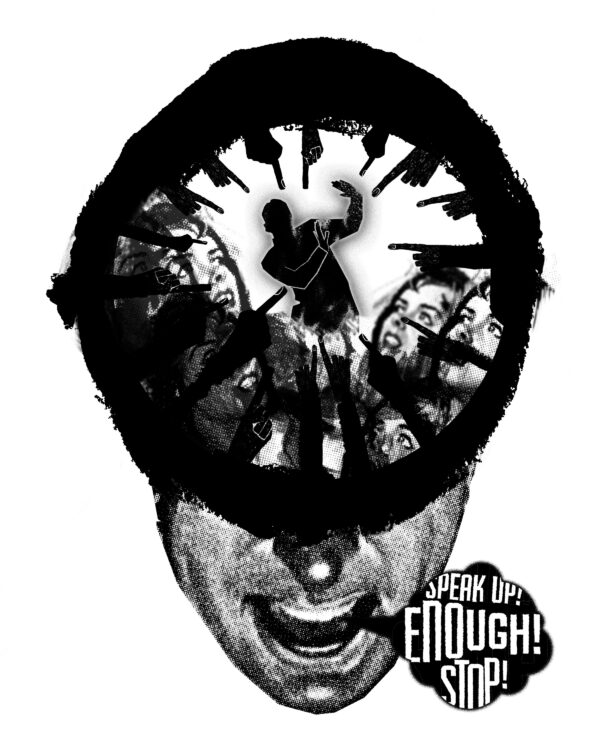
The life of an abuse victim is filled with a cacophony of sounds: the screech of a voice, the crack of breaking furniture, the painful crashing of fists on flesh, the harsh words coming out the abuser’s mouth.
It’s a seemingly endless, pain-filled symphony, day in and day out. But the most deafening of all the sounds comes when someone really needs help.
Silence.
It could be their own silence, which they choose instead of facing questions, embarrassment, financial struggles, reviving buried memories or the fear of even more abuse for them and their families.
Many times it’s silence from bystanders who were raised to “mind their own business” or family members who don’t know how to help.
The confusing thing about this is that so many people, when asked, have said they would step in if they witnessed abuse. When asked what it would take, most say physical abuse wouldn’t be necessary, that even raised voices would cause them to intercede.
Last week, a group of our Ranger staffers set up cameras in the Badger Den and the area between the College Union Building and the library and had the host of #BadgerBS, Quintin Marquez, and our senior reporter, Alma Bustamante, act out scenarios of domestic violence.
We completed two scenarios: one in which Quintin acted as the abuser and one in which Alma did, which we shot twice in order for us to get any kind of reaction.
Each time, they were surrounded by anywhere from 20 to 40 students, staff and faculty. Our actors started with yelling and progressed to pushing, grabbing and shaking the other person.
In each scenario, only one person showed concern and stepped in to help. In the second scenario, when Alma played the abuser, we had to try in two locations before there was any sort of reaction.
Two people.
We’d like to say it was because they were horrible actors and no one noticed. But as we watched, we witnessed groups of people turning to stare as the “fights” escalated.
In one instance, when Alma shoved Quintin, a bystander moved quickly out of the way, while apologizing. Others nudged each other and snickered. But none of those stepped in.
As we talked to people and among ourselves, we found that the reasons for not stepping in mostly focused on three things: fear for their own safety, fear of being wrong or the belief that they should “mind their own business.”
But you can’t be afraid to step in. If you see something that doesn’t seem right, say something, even if it’s just to ask if everything and everyone is OK.
If you think your own safety is in jeopardy, pick up your phone and call the police. There’s always something you can do.
You also can’t let the fear of being wrong stop you from stepping in. People don’t like to look stupid. We get that.
We also get that not every argument is a sign of domestic abuse.
Also, there are different types of abuse. Emotional, verbal and mental abuse, for example, can be just as painful as physical abuse.
Your pride is worth less than someone’s life. Don’t be the person who “could have” done something. Don’t let your inaction add another name to the list of those killed by an abuser.
Finally, there is a time and place for “minding your own business.” When people are doing something that doesn’t hurt anyone else, it’s perfectly acceptable to mind your own business. In fact, you definitely should in those cases.
But when his or her actions inflict pain on someone else, it’s time to throw that politeness out and get involved.
An abuse victim is just that – a victim – regardless of sex, age, race, ethnicity, social or financial standing or relation to you. You can’t know someone is in an abusive relationship just by looking at him or her. Sometimes, victims are the best actors. While pretending everything is all right, they’re living their own hell alone.
It’s up to the rest of us to stand up for them when they can’t, whether it is because they don’t know how, because they’ve become used to the abuse or because they’re paralyzed by fear.
Above all, if they come to you for assistance, don’t deafen them with silence. You may not get another chance to help.

Leave a Reply